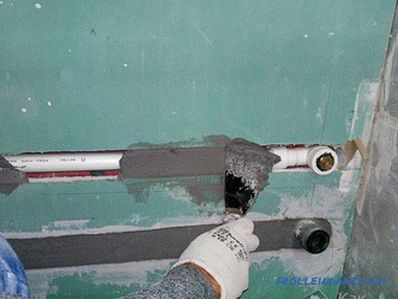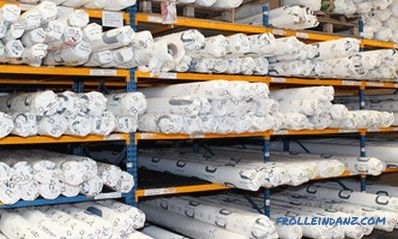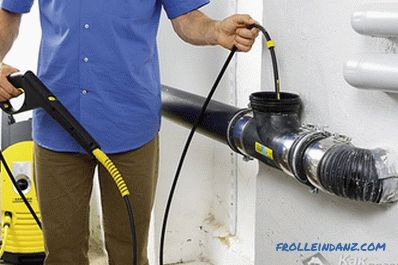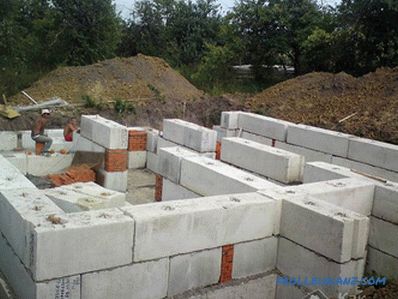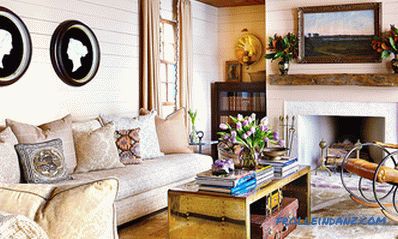Some types of wallpaper can boast their ability to resist moisture. Others differ in that they have increased heat and noise insulation, and the main difference between the third wallpaper is their appearance and texture. In order to know and consider as best as possible the varieties of wallpaper that exist today, they must be divided into groups, depending on the materials that were used during their production.
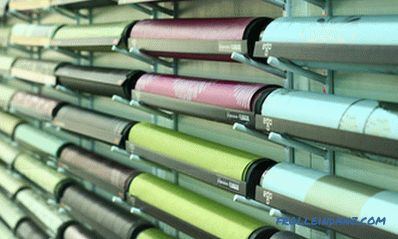
Classification of wallpaper
By water resistance:
- Wallpaper is ordinary. It is necessary to avoid contact with moisture. They can only be cleaned with a dry cloth.
- The wallpaper is waterproof. They have a special coating, so they can be cleaned with a slightly damp cloth. But the use of detergents is strictly prohibited.
- Washing wallpaper. Usually cleaned with added detergent.
- Highly resistant - vinyl wallpaper. The names speak for themselves, withstand all of the above methods of cleaning and even more.
By designation:
- There are different types of wallpaper for walls.
- And types of wallpaper for ceilings.
Classification of wallpaper by their surface:
- Wallpapers come with a smooth surface.
- Wallpaper with embossed pattern. This drawing is applied during production.
- Wallpaper drawing, on which finely extruded.
- As well as multi-layered wallpaper with a deep pattern.
The next category according to which wallpapers are classified is their density:
There are two categories, classifications of wallpapers by their density are light and heavy.
Heavy wallpaper, are those density of not less than 110 g \ m. When sizing them, difficulties may arise if there are irregularities on the wall. But their main advantage is that they have a positive effect on the microclimate of the room.
And the last category by which wallpapers are classified is a picture:
- There are smooth wallpapers that are presented in one color.
- Patterned wallpapers, they do not have a repeating pattern, which does not require the fitting of adjacent strips of gluing.
What are the types of wallpaper
Paper wallpaper
The cheapest wallpaper, and for many years now is the most popular type of wallpaper for pasting walls and ceilings. And all thanks to the fact that they are made of environmentally friendly materials that allow the walls to breathe. But they have a lot of disadvantages. For example, they very quickly lose their appearance; they cannot be glued in rooms where there is high humidity. The advantages can also be attributed to the fact that they allow in some degree to increase the thermal insulation of the walls. Paper wallpaper can satisfy the tastes of probably all buyers, as they are presented in almost all colors and at the same time they have a different texture.
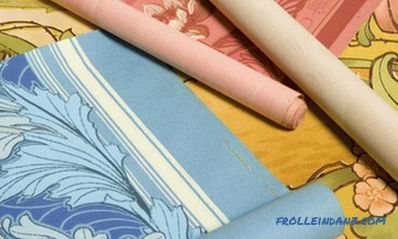
Washable wallpaper or vinyl
During their manufacture, paper is coated with a layer of PVC of various density. This is an ideal option for both residential and non-residential premises. They are well suited for the kitchen, bathroom, or toilet. Foam vinyl wallpaper can be cleaned with a mild soap solution. But compact ones are considered to be the strongest - they are not only not afraid of detergents, but even a brush can be used during their cleaning.
There is another kind of vinyl wallpaper called silk screen. Silk threads contain their upper layer. These decorative wallpapers can boast of very bright colors and have a high resistance to fading. There are other advantages, such as elasticity and a waterproof top layer, which allows them to be used in pasting absolutely all rooms.
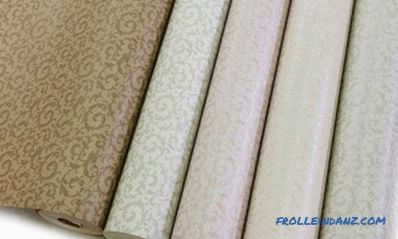
Non-woven wallpaper
Their main difference from other types of wallpaper is that they use non-woven fabric instead of paper for their base. The composition of fleselin includes cellulose and synthetic fabric fibers. This wallpaper is just a great option "for painting", and a variety of drawings and textures will be able to please even the most discerning buyers. It is worth noting the fact that due to its density, they hide all the defects of the wall. They are very convenient because they are not afraid of temperature drops in the room, and when gluing they do not form bubbles and wrinkles.
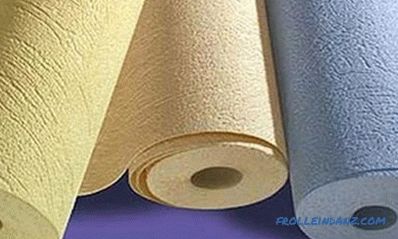
Acrylic Wallpaper
Best suited to those who have small children or animals at home. This is the golden mean if you choose between paper and non-woven wallpaper. The advantages include the fact that they are inexpensive and can be washed with a soft cloth. The disadvantages can be attributed to the fact that they do not tolerate high humidity, you need to be extremely careful when washing and another minus is a rather limited choice of design.
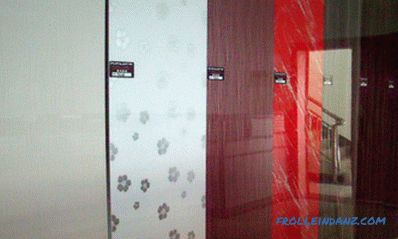
Textile wallpapers
During manufacture, fabric fibers, such as linen, silk, felt or velor, are superimposed on the paper base. Most often they are used for pasting walls in the bedroom or in the hall, they in these rooms look more aesthetic than paper.They have only one drawback, it is quite high valuable.
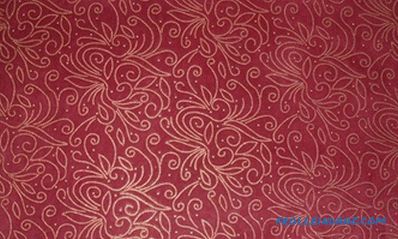
Liquid Wallpaper
The youngest look among the wallpapers, which managed to gain a huge popularity. And all due to the fact that with their help it is easy to create a smooth relief coating without joints. Natural fibers, cotton, cellulose, textile fibers are their part. You can dilute them with water-based paint, and they are applied to the wall as well as plaster. The main thing is that the surface on which they were applied, had no significant defects. This type of wallpaper on the Russian market is presented in liquid or powder form.
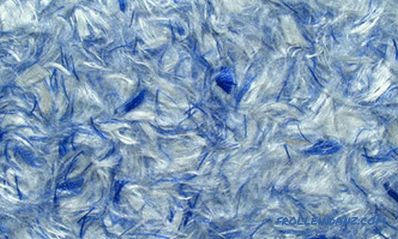
Glass Tiles
Glass Tiles are made of a fabric to which fiberglass filaments are added. This wallpaper is highly durable, does not ignite, and is also a reliable protection of the walls from the appearance of microorganisms in the form of a fungus, as well as they can withstand chemical treatment. What is included in their composition? This soda, quartz sand, dolomite, lime, a combination of these components and gives them the listed properties. Glass fiber is very often used for medical institutions.
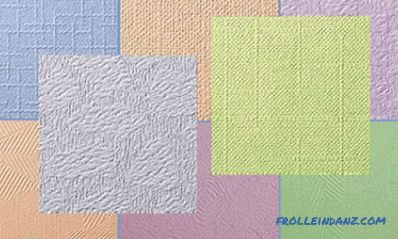
Photo wallpaper
Photo wallpaper - a paper canvas with a photo printing applied to it. The wall on which the wallpaper is pasted, looks like a picture. But it is worth considering the fact that it will look especially beautiful laminated wallpaper, it will protect them as much as possible from abrasion. And the appearance is noticeably improved. Wall mural is best to apply in those rooms where there is very little furniture in order not to close the drawing.
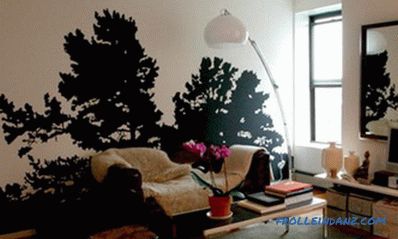
Natural wallpapers
The most unique wallpaper that embodies all the natural beauty and is not very famous among buyers. During the manufacture of these wallpapers use only natural materials. The basis of the wallpaper is not bleached paper, the outer layer is different types of plants.
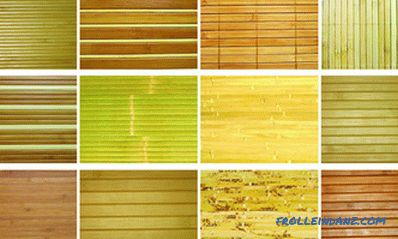
Metal Wallpaper
They are made by coating a paper base with a layer of foil, then a drawing or embossing is applied to the surface of the wallpaper. For sticking metal wallpapers, dispersion glue is needed, but their main advantage is that they are well-washed and wear-resistant.
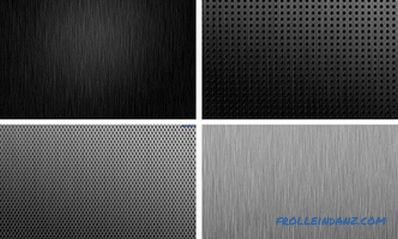
Cork wallpaper
This is an ecological type of wallpaper that can give charm to absolutely any room. They are made from the bark of cork oak due to hot pressing. Under the influence of high temperature from the bark begins, resin is released, which glues the material together. In order to make this wallpaper as resistant as possible to moisture they are impregnated with wax.
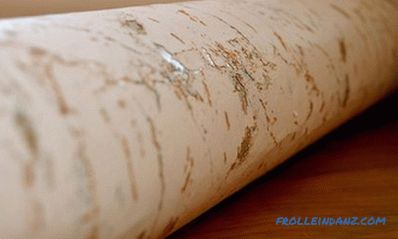
Quartz
Eco-friendly wallpapers that are very good at cleaning, and you can always repaint them if you need to change the shade. For their production, a layer of crushed natural minerals or materials, such as wood fiber, is applied to a paper or non-woven base. But most often they use crushed colored quartz, in whose honor the wallpaper was named. The term of their operation can reach 20 years.
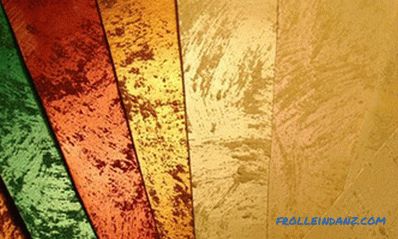
Velor wallpapers
They are ideal for decoration in rooms that are not susceptible to pollution, for example, in the living room bedroom or office. They consist of two layers. The first layer is paper or non-woven base, and the second is covered with a decorative velor shaggy layer.
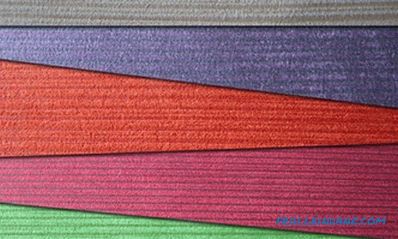
Video: Wallpaper types - disadvantages and advantages of each type
